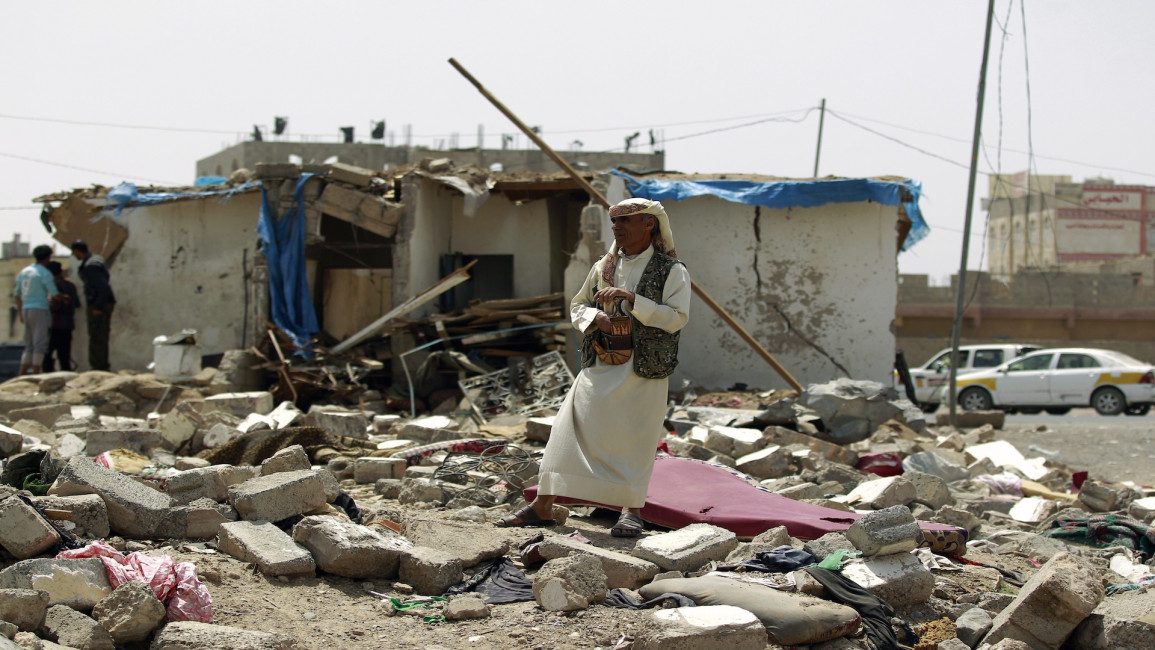IS claims Sanaa attack as Yemen marks unification anniversary
A bomb has exploded at a mosque in the Yemeni capital Sanaa during Friday prayers with Islamic State claiming responsibility for the attack in a statement on Twitter according news agency, Reuters.
Also on Friday, Saudi-led airstrikes continued to target positions held by the Houthis and their allies in Sanaa, on the day that marks 25 years since the unification of the former North and South Yemen, on May 22 1990.
The number of casualties from the mosque attack, to the north of the Old City, is yet to be confirmed.
In southern Yemen, at least 19 fighters were killed in airstrikes and in ground clashes, security sources told AFP.
“It was a morning of terror,” a resident of a southern suburb of Sanaa said after military bases were hit again by the airstrikes, before the mosque bombing.
In the north of the city, warplanes targeted a stadium and a Republican Guard base loyal to Yemen's former president Ali Abdullah Saleh, who is allied to the Houthis.
Houthi positions in Marib province, to the east of Sanaa, are also said to have been hit.
Meanwhile, Saudi state television said on Thursday that a Saudi civilian was killed and three people injured in shelling of Najran province from northern Yemen.
The Saudi-led coalition has waged an air campaign against the Houthis and Saleh since March 26 in an effort to restore the authority of President Abd Rabbo Mansour Hadi, who has fled to Riyadh with members of his government.
A United Nations conference to relaunch political talks on Yemen is to open in Geneva next week, despite uncertainty over who will attend.
Unification Day
A plan to commemorate the unification of Yemen was largely shelved, as the situation in the country means that celebrations have taken a backburner.
There is no government in both Sanaa and the southern city of Aden, the South's former capital, and a bastion of separatist sentiment.
In Sanaa, the Ministry of Defence's military band did hold a parade, but the event was small.
It is not the first time that the anniversary of the National Day has fallen during a crisis in the country. In 1994, Yemenis commemorated it during the civil war that took place between the signatories of the unification agreement, with the president, Ali Abdullah Saleh on one side, and his vice, Ali Salem al-Beidh, on the other.
In 2011, the anniversary fell during the popular revolt against Saleh, with Sanaa and Taiz both in the throes of limited clashes between army forces loyal to Saleh and those opposed to him, as vast protest camps engulfed the cities.
The war is affecting the whole country today, from Sadah in the north to Abyan in the south. Aden, where the unification flag was first raised in 1990, is now the scene of running battles between Houthi-Saleh forces and locals who mostly raise the flag of the former South Yemen.



